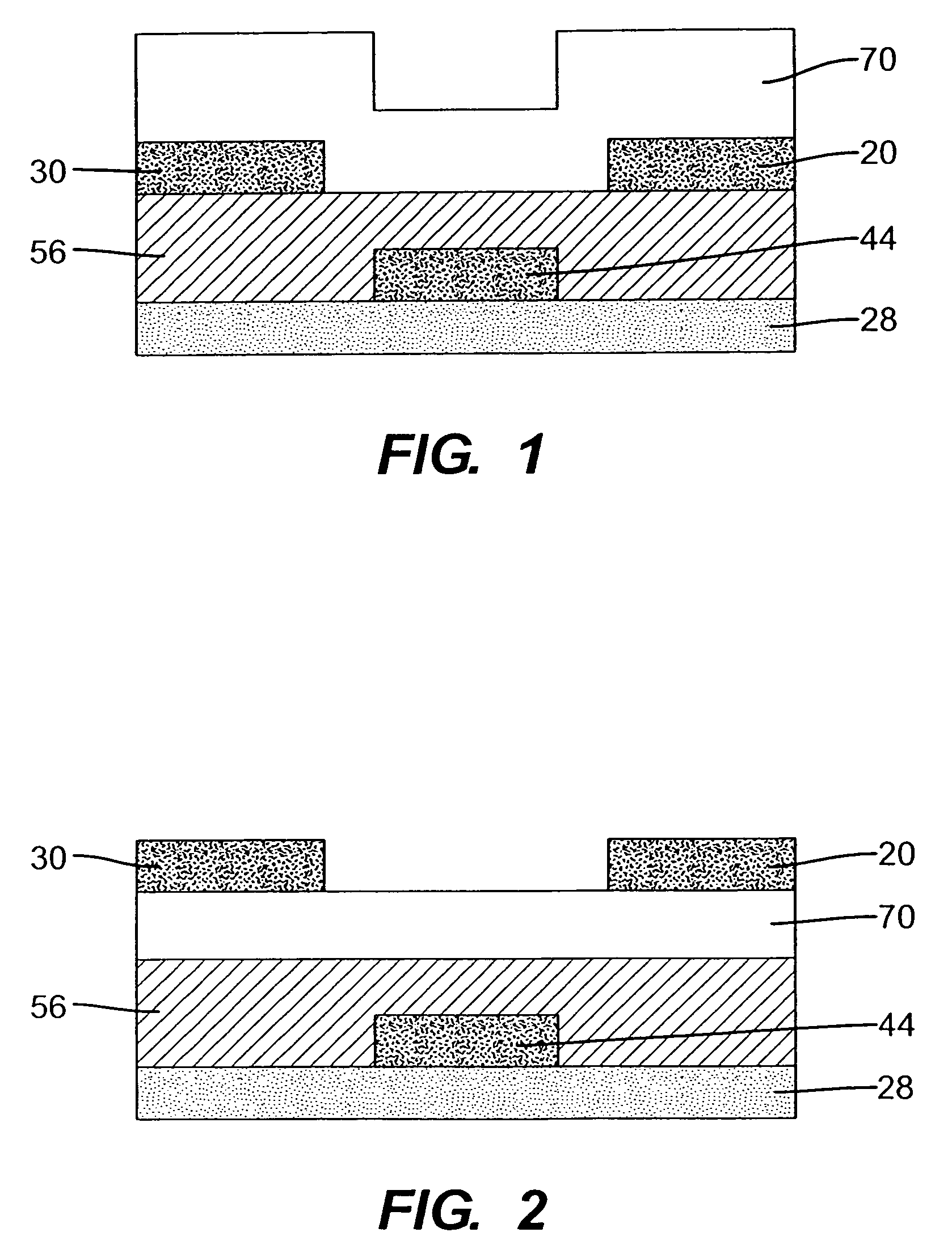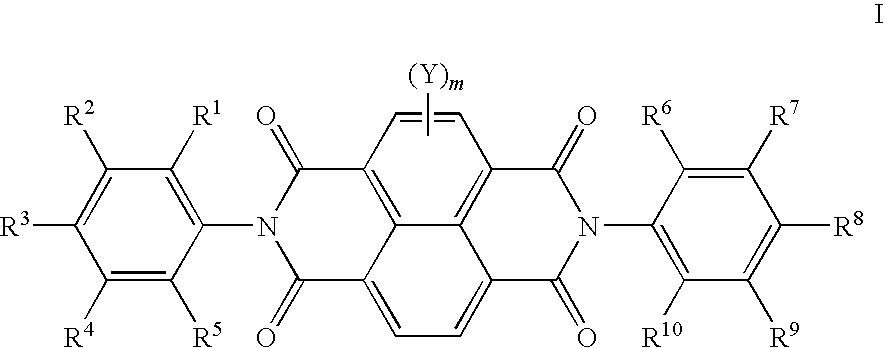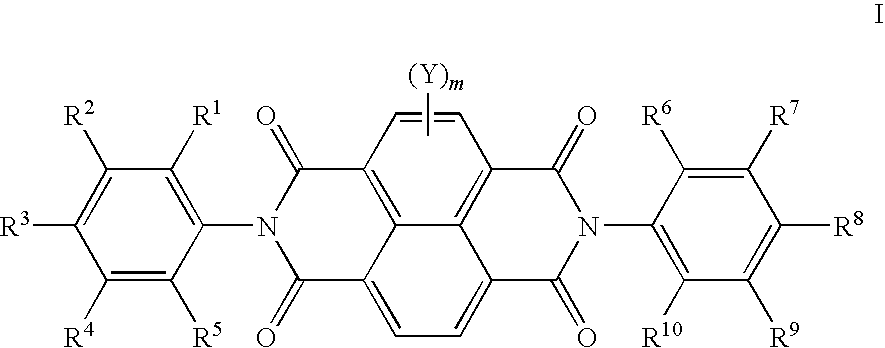N-type semiconductor materials for thin film transistors
a technology of thin film transistors and semiconductor materials, applied in semiconductor/solid-state device testing/measurement, naphthalimide/phthalimide dyes, instruments, etc., can solve the problems of amorphous silicon still having its drawbacks, amorphous silicon still has its drawbacks,
- Summary
- Abstract
- Description
- Claims
- Application Information
AI Technical Summary
Benefits of technology
Problems solved by technology
Method used
Image
Examples
example 2
[0089]This example demonstrates the improved performance of an n-type TFT device using N,N′-di(4-methylphenyl)-1,4,5,8-naphthalene tetracarboxylic acid diimide, Compound I-1 in accordance with the present invention.
[0090]An n-type TFT device comprising Compound I-1 as the active material was made as in Example 1. Accordingly, compound I-1 was deposited by vacuum sublimation at a pressure of 2×10−7 Torr and a rate of 0.5 Angstroms per second to a thickness of 25 nm as measured by a quartz crystal. During deposition the substrate was held at a constant temperature of 90° C. The sample was exposed to air for a short time prior to subsequent deposition of Ag source and drain electrodes through a shadow mask to a thickness of 50 nm. The devices made had an approximately 420 micron channel width, with channel lengths varying from 50 to 175 microns. Multiple organic thin film transistors (OTFTs) were prepared and representative sample of 4 to 12 OTFTs were tested for each deposition run. T...
example 3
[0094]This example demonstrates the improved performance of an n-type TFT device using N,N′-di(3 -methylphenyl)-1,4,5,8-naphthalene tetracarboxylic acid diimide, Compound I-2 in accordance with the present invention.
[0095]An n-type TFT device comprising Compound I-3 as the active material was made as in Example 1. Accordingly, compound I-3 was deposited by vacuum sublimation at a pressure of 2×10−7 Torr and a rate of 0.1 Angstroms per second to a thickness of 10 nm as measured by a quartz crystal. During deposition the substrate was held at a constant temperature of 90° C. The sample was exposed to air for a short time prior to subsequent deposition of Ag source and drain electrodes through a shadow mask to a thickness of 50 nm. The devices made had an approximately 420 micron channel width, with channel lengths varying from 50 to 175 microns. Multiple organic thin film transistors (OTFTs) were prepared and representative sample of 4 to 12 OTFTs were tested for each deposition run. ...
example 4
[0099]This example demonstrates the improved performance of an n-type TFT device using N-(4-butyl-phenyl)-N′-(4-t-butyl-phenyl)-1,4,5,8-naphthalene tetracarboxylic acid diimide, Compound I-7, in accordance with the present invention.
[0100]An n-type TFT device comprising Compound I-7 as the active material was made as in Example 1. Accordingly, compound I-7 was deposited by vacuum sublimation at a pressure of 2×10−7 Torr and a rate of 0.1 Angstroms per second to a thickness of 20 nm as measured by a quartz crystal. During deposition the substrate was held at a constant temperature of 90° C. The sample was exposed to air for a short time prior to subsequent deposition of Ag source and drain electrodes through a shadow mask to a thickness of 50 nm. The devices made had an approximately 420 micron channel width, with channel lengths varying from 50 to 175 microns. Multiple organic thin film transistors (OTFTs) were prepared and representative sample of 4 to 12 OTFTs were tested for each...
PUM
| Property | Measurement | Unit |
|---|---|---|
| temperature | aaaaa | aaaaa |
| temperatures | aaaaa | aaaaa |
| drain-source voltage | aaaaa | aaaaa |
Abstract
Description
Claims
Application Information
 Login to View More
Login to View More - R&D
- Intellectual Property
- Life Sciences
- Materials
- Tech Scout
- Unparalleled Data Quality
- Higher Quality Content
- 60% Fewer Hallucinations
Browse by: Latest US Patents, China's latest patents, Technical Efficacy Thesaurus, Application Domain, Technology Topic, Popular Technical Reports.
© 2025 PatSnap. All rights reserved.Legal|Privacy policy|Modern Slavery Act Transparency Statement|Sitemap|About US| Contact US: help@patsnap.com



